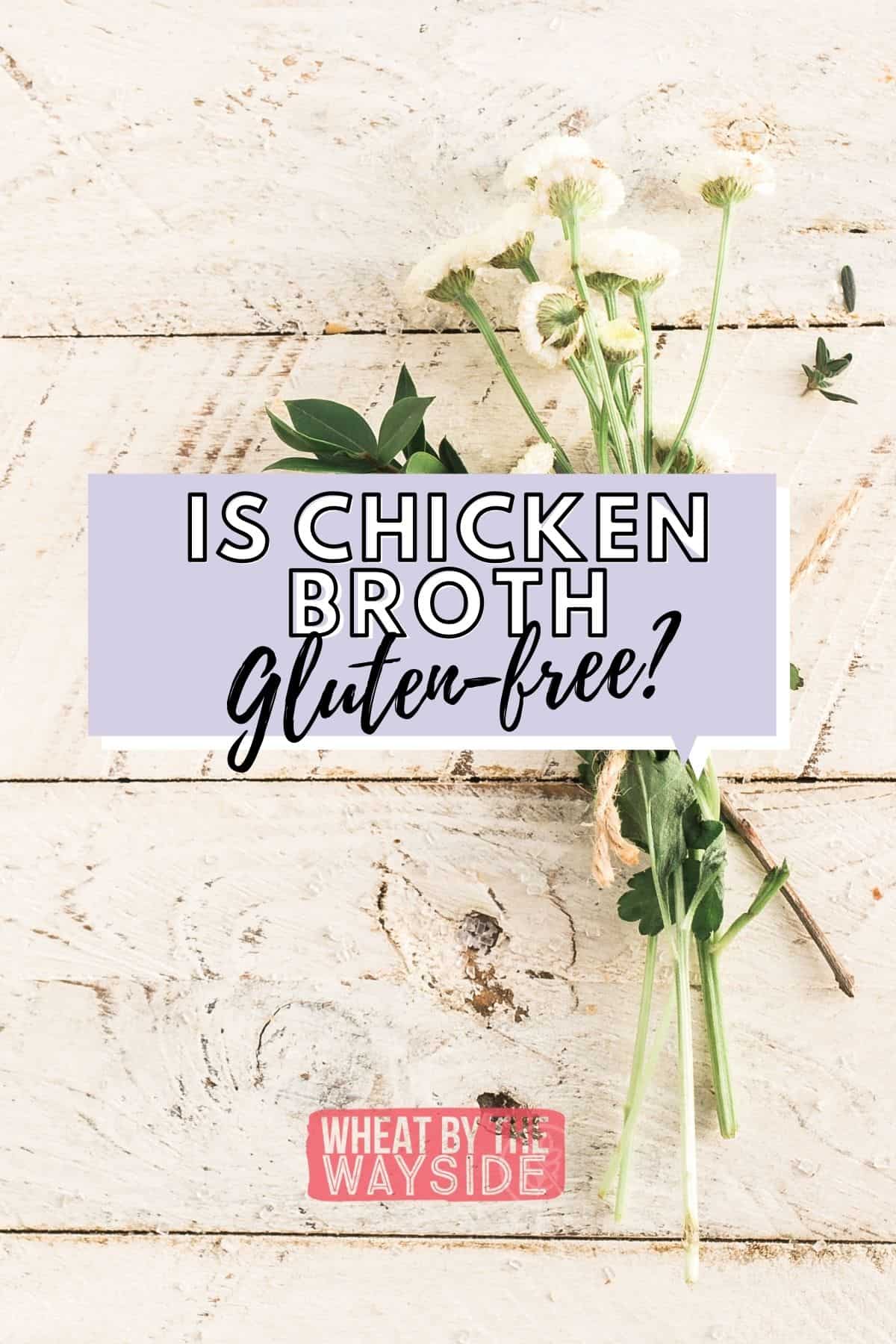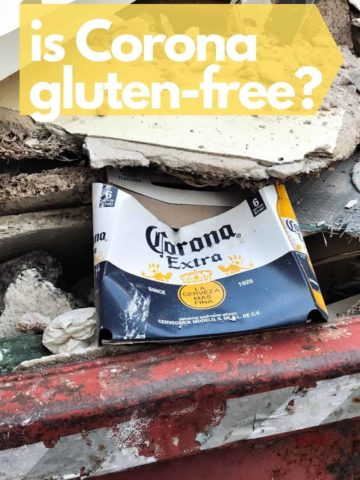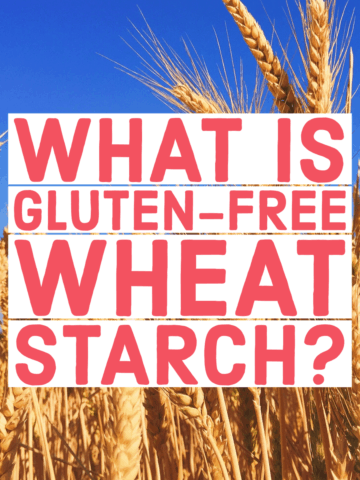Let's take a deep dive into another common cooking ingredient and find out, is chicken broth gluten-free? In this article, you will learn which ingredients to look out for and take a look at a few popular brands to find out if they carry gluten-free chicken broth.

💌 Want to Save This?
Unsubsribe at any time.
When you start a gluten-free diet due to celiac disease or for other reasons, you will likely be overwhelmed at first. Then comes the day when you come across an ingredient you never would have imagined contained gluten and it does. One of those surprising ingredients is chicken broth!
There are a few ingredients in chicken broth that could contain gluten, but rest assured there are ample gluten-free options in your stores. It is arguably much easier to find a gluten-free chicken broth than a gluten-free bouillon! The point is to never assume something is gluten-free, but to always double-check labels!
Just a tip! Most of this information applies to gluten-free beef broth and vegetable broth as well.
Jump to:
Suspect Ingredients
There are a couple of ingredients to look for in any chicken broth that could be harboring gluten. Some of the possible gluten-containing ingredients you may find are:
- Yeast Extract or Autolyzed Yeast Extract
- Natural Flavors
- Rarely, wheat, barley malt, or other gluten-containing ingredients.
With the exception of wheat or barley malt, these ingredients may or may not be gluten-free. For example, yeast extract could contain gluten from barley and should only be consumed if labeled gluten-free. Natural flavors can also be derived from wheat, barley, or malt in some instances, although not as common.
If you see these ingredients, you should avoid the product, see if a grain source is listed, or look for a gluten-free claim on the label.
May Contain Wheat
Aside from the other questionable ingredients, the most common red flag you'll find on chicken broth is a contains statement, such as "may contain wheat" or "made on shared equipment with wheat."
These statements fall under the food allergen labeling laws known as FALCPA. FALCPA requires food manufacturers to label food products that contain a protein from a major food allergen. Though, a "may contain" statement is voluntary and not required. This is the manufacturer voluntarily telling you that this product has not been produced in a dedicated facility.
When you see this statement, it does not necessarily mean the product is unsafe for you to consume but unless there is also a gluten-free claim, it may be best to err on the safe side and avoid those products. That is because it's hard to tell the amount of relative risk for cross-contact unless you call the manufacturer or visit their website to learn more about how the product is made or their procedures for cleaning equipment between products.
Brands That Are Gluten-Free
Below is a list of gluten-free chicken broths from popular brands available at most grocery stores. *As always, double-check labels before purchasing to verify that ingredients or gluten-free claims have not changed.
- College Inn has a list of gluten-free broths and stocks, including several varieties of chicken broth.
- Imagine broths are gluten-free.
- Kettle & Fire offers many certified gluten-free broths and bone broths.
- Kitchen Basics stocks and broths are gluten-free. McCormick, the parent company, validates that if any product has a gluten-free claim, the product and the manufacturing line have been validated to be gluten-free.
- Ocean's Halo offers several gluten-free broths.
- Pacific Foods has many gluten-free labeled broths and stocks. They perform an extensive five-step cleaning process of all equipment after each product is produced. Top 8 allergen ingredients and finished products containing those ingredients are kept in an allotted space.
- Swanson has a range of gluten-free broths and stocks that are verified to be gluten-free.
Private Label Brands
The most common sources of chicken broths that are not gluten-free are private label brands. This makes sense because these brands are not solely producing broth, but rather a wide range of private label products on shared equipment. Many private label brands do offer gluten-free chicken broth, but it can be hit or miss. For this reason, it is best to look for a gluten-free claim on the packaging. For example:
- Simple Truth Organic: Some broths are labeled gluten-free and some are not. The flavors not labeled gluten-free also state "may contain wheat and their derivatives" on the label.
- Kroger Brand: Some have a gluten-free label, some do not.
- Walmart - Great Value: Not labeled gluten-free. Label states, "may contain traces of wheat." Although the bone broth does seem to be labeled gluten-free.
- Target - Good & Gather: Not labeled gluten-free. There is no information on the box but the product information on Target's website states: does not contain any of the 8 major allergens but also states, may contain wheat.
- Meijer: Appear to be labeled gluten-free.
- Trader Joe's: Broths appear to be made on shared equipment.
- Hy-Vee: All broths appear to be gluten-free.
As you can see, when it comes to private label broth, you must check each one individually, even within the same brand.
Look for a Gluten-free Claim
While there are many companies that offer gluten-free chicken broth, there are some unsafe products on the market. For this reason, you should never assume that a particular broth is gluten-free. When it comes to buying chicken broth, or any broth for that matter, it's best to look for a gluten-free claim on the label, especially if you are on a strict gluten-free diet. This will ensure that the company has validated that the broth is below 20ppm of gluten, even if the broth contains yeast extract or is processed in a facility with wheat.
Let us know in the comments what you learned about broth today! Do you have a go-to brand for gluten-free broth?
Gain access to our FREE exclusive mini-series:
Gluten-Free Baking and Lessons Learned!
Plus, be the first to know about new recipes and exciting announcements!
📩 Sign up for the Mini-Series Here! 📩
Disclaimer: The information in this article is the personal opinion of the author and for educational purposes only. This is not medical or nutritional advice. Please consult a doctor or medical professional before making changes to your diet or regarding any health related decisions. Ingredient information was accurate at the time of posting but should always be verified by the consumer by checking the product ingredient label for the most up to date information.










Comments
No Comments